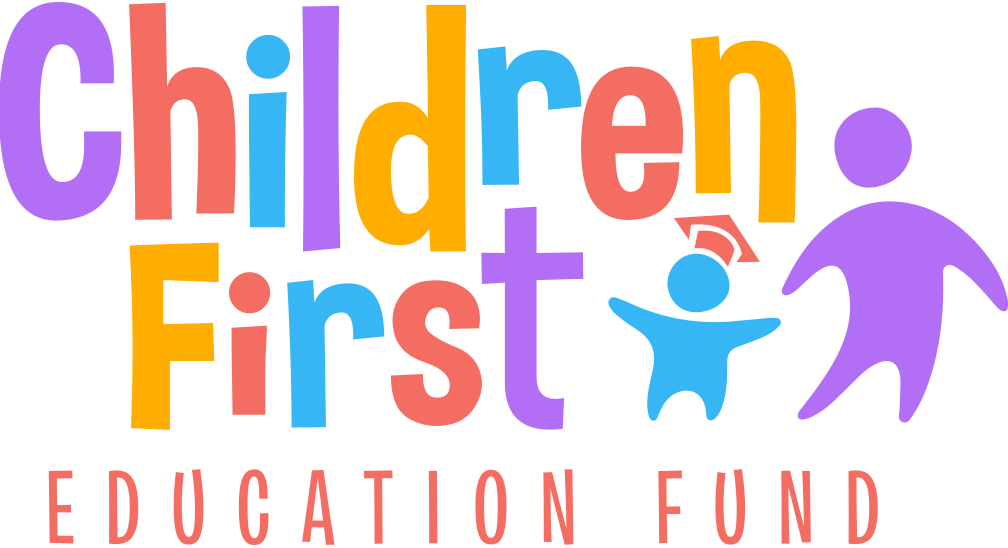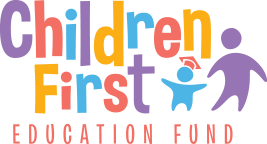Qualifying Schools Toolkit
Becoming a Children First Education Fund Qualifying School
At Children First Education Fund, we understand the importance of working closely with our partner schools, our families, and our generous donors to achieve our shared mission of providing a quality education choice for students with disabilities. CFEF is here to support schools in the process of becoming qualified to receive scholarship funds under the Carson Smith Opportunity Scholarship Program. We offer support to our partner schools from recruitment through application, to delivering a quality education for students with disabilities.
To participate in the program, students and schools must meet eligibility requirements established by Utah law and Administrative Rules, and applicants are encouraged to refer directly to Utah Code 53E-7-4 and the Utah State Board of Education Administrative Rule R277-626. The Children First Education Fund provides scholarships to eligible students with disabilities who enroll in qualifying private schools. The scholarship is awarded for a term of three years and may be renewed in 3-year increments. The amount of the scholarship is variable dependent on family income and tuition rates of qualifying schools. The Children First Education Fund is funded by generous donations of individuals and businesses that may receive a 100% nonrefundable Utah state income tax credit. Scholarships are not guaranteed, but are subject to the availability of funds, with priority given to existing scholarship students.
To participate in the program and accept CFEF scholarships, a school must meet all of the requirements set forth in Utah Code Section 53E-7-4 and R277-626 for qualifying schools and eligible private schools, including the following:
Qualifying School Requirements (53E-7-403)
- A qualifying school shall notify CFEF of the qualifying school’s intention to participate in the program.
- A qualifying school shall submit evidence to CFEF that the qualifying school has been approved by the State Board under Section 53E-7-408.
- A qualifying school shall submit a signed affidavit to CFEF that the qualifying school will comply with the requirements of this part.
- A qualifying school shall comply with 42 U.S.C. Sec. 1981, and meet state and local health and safety laws and codes.
- Before the beginning of the school year immediately following a school year in which a qualifying school receives scholarship money equal to or more than $100,000, the qualifying school shall file with CFEF
- a surety bond payable to CFEF in an amount equal to the aggregate amount of scholarship money expected to be received during the school year or
- financial information that demonstrates the financial viability of the qualifying school, as required by CFEF.
- If CFEF determines that a qualifying school has violated a provision of this part, CFEF may interrupt disbursement of or withhold scholarship money from the qualifying school.
- If the State Board determines that a qualifying school no longer meets the eligibility requirements described in Section 53E-7-408, the State Board may withdraw the State Board’s approval of the school.
- A private school that does not have the State Board’s approval may not accept scholarship money under this part.
- A qualifying school shall, when administering an annual assessment required under Section 53E-7-408, ensure that the qualifying school uses a norm-referenced assessment.
Eligible Private Schools (53E-7-408)
- A school must have a physical location in Utah where the scholarship students attend classes and have direct contact with the school’s teachers.
- A school must contract with an independent licensed certified public accountant to conduct an Agreed Upon Procedures engagement as adopted by the State Board, or obtain an audit and report from a licensed independent certified public accountant that conforms with the following requirements:
- the audit shall be performed in accordance with generally accepted auditing standards;
- the financial statements shall be presented in accordance with generally accepted accounting principles; and
- the audited financial statements shall be as of a period within the last 12 months; and
- submit the audit report or report of the agreed upon procedure to the state board when the private school applies to accept scholarship students.
- A school must comply with the antidiscrimination provisions of 42 U.S.C. 2000d. This section is a prohibition against exclusion from participation in, denial of benefits, and discrimination under federally assisted programs on the grounds of race, color or national origin.
- A school must meet state and local health and safety laws and codes, including:
- the adoption of emergency preparedness response plans that include training for school personnel and parent notification for fire drills, natural disasters, and school safety emergencies and
- compliance with Utah Health Department Administrative Rule R392-200, Design, Construction, Operation, Sanitation and Safety of Schools
- A school must provide a written disclosure to the parent of each prospective student, before the student is enrolled, of the special education services that will be provided to the student, including the cost of those services, tuition costs, additional fees a parent will be required to pay during the school year, and the skill or grade level of the curriculum in which the prospective student will participate.
- A school must administer an annual assessment of each scholarship student’s academic progress and report the results of the assessment to the scholarship student’s parent.
- A school must employ or contract with teachers who hold baccalaureate or higher degrees, have at least three years of teaching experience in public or private schools, or have the necessary skills, knowledge, or expertise that qualifies the teacher to provide instruction in the subject or subjects taught and to the scholarship students taught.
- The school shall maintain documentation demonstrating that teachers at the private school meet the qualifications described above and provide to the parent of a scholarship student the relevant credentials of the teachers who will be teaching the scholarship student.
- The school must require the following individuals to submit to a nationwide, fingerprint-based criminal background check and ongoing monitoring, in accordance with Section 53G-11-402, as a condition for employment or appointment, as authorized by the Adam Walsh Child Protection and Safety Act of 2006, Pub. L. No. 109-248:
- an employee who does not hold a current Utah educator license issued by the state board under Chapter 6, Education Professional Licensure;
- a contract employee; and
- a volunteer who is given significant unsupervised access to a student in connection with the volunteer’s assignment.
Ineligible Schools
A private school is not eligible to enroll scholarship students if:
- the private school requires a student to sign a contract waiving the student’s rights to transfer to another qualifying school during the school year;
- the audit report contains a going concern explanatory paragraph; or
- the report of the agreed upon procedures shows that the private school does not have adequate working capital to maintain operations for the first full year.
- A home school is not eligible to enroll scholarship students.
- Residential treatment facilities licensed by the state are not eligible to enroll scholarship students.
Application Procedures
The State Board shall approve a private school’s application to enroll scholarship students if the private school meets the eligibility requirements.
A private school approved under this section that changes ownership shall submit a new application to the state board and demonstrate that the private school continues to meet the eligibility requirements of this section.
For more information about the USBE application, contact: Tony Zambrana, Special Needs Scholarship Grants, Phone: (801) 538-7589, email: Tony.Zambrana@schools.utah.gov
Additional Agreements
Schools enrolling CFEF students shall, in concert with the parent seeking a scholarship, initiate assessment team meetings as required at least once every 3 years to demonstrate continued eligibility. Designated private school personnel shall maintain documentation of the assessment team meetings and the decisions made for the students. This documentation shall be maintained confidentially, except that the information shall be provided for purposes of audit, verification of services and eligibility, and CFEF quality assurances.
Schools enrolling CFEF students shall provide complete student records in a timely manner to other private schools or public schools requesting student records if parents have transferred students.
Schools enrolling CFEF students will notify CFEF within five days if the student does not continue in enrollment in the school for any reason, including parent/student choice, suspension or expulsion of the student, or the student misses more than 10 consecutive unexcused days of school. Following a student withdrawal, a school shall reimburse remaining scholarship money to CFEF.
Scholarship Disbursements
Schools enrolling CFEF students will receive scholarship payments made by CFEF in quarterly payments.
Schools enrolling CFEF students will provide documentation that verifies scholarship students’ continuing enrollment and attendance prior to each scholarship payment. The documentation is handled through an online portal system.
Changes in Qualifying School Ownership
An approved eligible school that changes ownership shall submit a new application to the State Board and demonstrate that it continues to meet the eligibility requirements of the Carson Smith Opportunity Scholarship Program.
Student Eligibility Requirements
To qualify for a scholarship, a student must meet all the requirements set forth in Utah Code Sec. 53A-1a-704; detailed below.
The student’s custodial parent or legal guardian must reside in Utah.
The student must have one or more of the following disabilities as detailed in the Individuals with Disabilities Education Act (IDEA):
- Intellectual Disability
- Hearing Impairment
- Speech or Language Impairment
- Visual Impairment
- Emotional Disturbance
- Orthopedic Impairment
- Autism
- Traumatic Brain Injury
- Other Health Impairment
- Specific Learning Disability
- Developmental Delay, provided the student is at least three years of age and younger than eight years of age.
The student shall be eligible to participate in public school, in kindergarten or grades 1 through 12.
The student must have a current (within 3 years) IEP, ATMR or multidisciplinary team evaluation (MDT) to be eligible for services under the IDEA, and during the school year for which the student is applying for the scholarship, is not a student who receives the legacy Carson Smith scholarship or the Utah Fits All scholarship, or be a public school student.
The student must have obtained admission to an eligible private school or notice of an intent to enroll the student to be submitted as part of the application for scholarship. A letter from the school on the school’s letterhead and signed by the school administrator is sufficient to meet this requirement.

